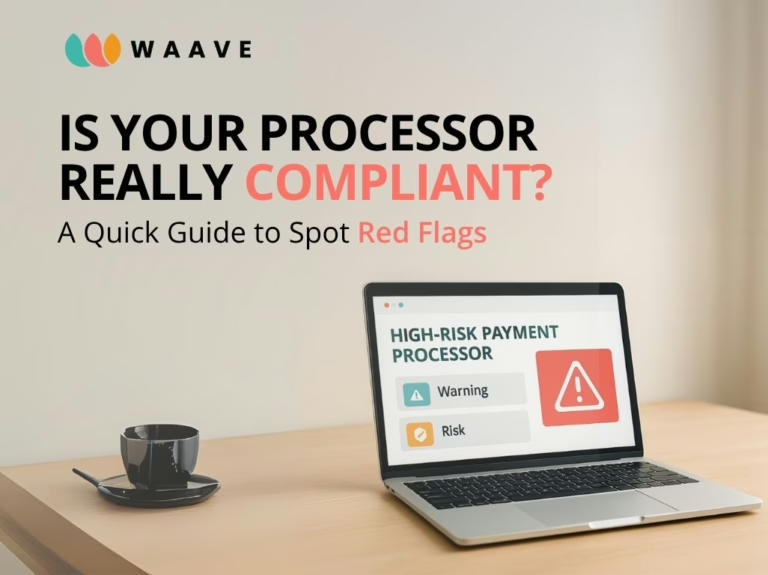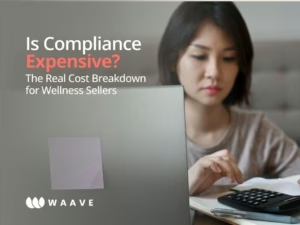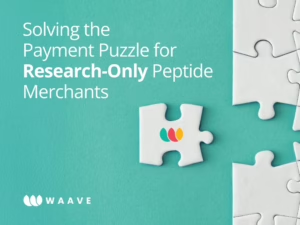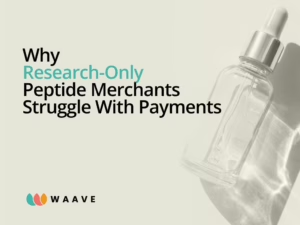In industries like CBD, kratom, vapes, and other botanicals, being classified as “high-risk” is expected. But what’s not always clear is whether your payment processor is actually equipped to handle the complexity that comes with that label.
It’s easy for a processor to market itself as “high-risk-friendly”. What’s harder is making sure every transaction you run complies with federal, state, and even city-level regulations—and that you’re not at risk of account freezes or chargebacks due to sloppy compliance.
Here’s a checklist to help you evaluate whether your processor is doing the hard work—or just cashing in on the high-risk trend.
Do they keep compliance rules updated as laws evolve?
New legislation rolls out regularly – especially for wellness products. If your processor isn’t monitoring and implementing updates, you’re operating under outdated rules.Do they review your product catalog against regulations?
True compliance requires checking each product based on where it’s being sold or shipped—not just a general approval. If your processor doesn’t screen at this level, you’re exposed.Do they disclose your business type to banking partners?
Some processors mask your true business model to reduce fees. That may seem helpful—until your accounts get frozen. Transparency protects your long-term viability.Can they provide a full audit trail?
Being able to show that every transaction met legal standards is crucial during a regulatory review or banking inquiry. If there’s no clear documentation, you’re taking all the risk.Can they block underage buyers and manage restricted customer lists?
Age verification and the ability to block specific users are fundamental. Bonus points if the platform lets you upload your own list of banned buyers.Do they apply shipping restrictions based on current rules?
Shipping into banned jurisdictions—even unintentionally—can get you penalized. A compliant processor updates these rules as laws change and stops orders before they go out.Do they enforce legal THC or alkaloid limits per serving and per package?
If you sell hemp or kratom products, your processor should prevent transactions that exceed state-defined maximums automatically—not rely on your team to catch violations.Do they manage Certificates of Analysis (COAs)?
Your processor should ensure that COAs are linked to each batch sold and that all active ingredients are accurately disclosed. This helps maintain legal traceability and build trust.Are their fraud and chargeback tools tailored for your industry?
A generic fraud filter isn’t good enough. You need tools designed around the behaviors, risks, and transaction patterns unique to wellness and botanical markets.
If You Checked “No” More Than Once…
You may be with a processor that claims to support high-risk industries—but doesn’t actually protect you from the real risks.
At WAAVE, we built our platform specifically for high-risk wellness sellers, from automatic compliance enforcement to dynamic rule updates and buyer blocklists. Every transaction is checked against the latest legal frameworks—at the federal, state, and even municipal level—so you can keep selling without surprise shutdowns.
Want to see how it works?






